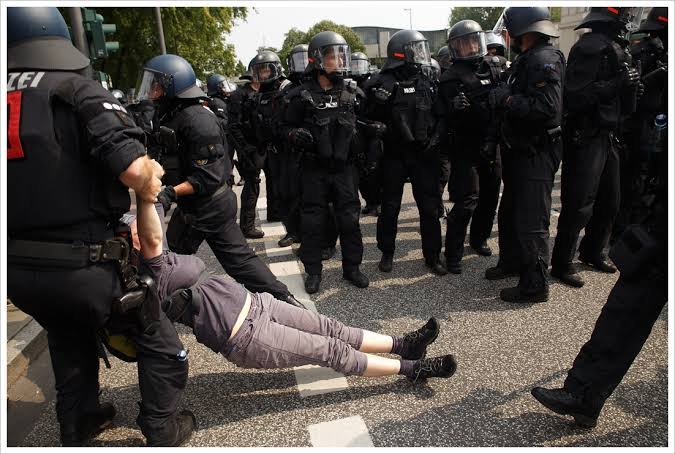Photo credit: Matthias Monroy
Germany has experienced several violent incidents in recent years.
Institute for Security & Development Policy reports that though the attacks occurred in different regions of the country and the assailants used different methods and had different motivations, they have dominated political discourse, with security and immigration policies becoming central issues ahead of the upcoming elections.
The right-wing populist party Alternative for Democracy (AfD), currently polling second in the upcoming election, is leveraging public fear to advance anti-immigration agendas, risking further polarization. Political parties have called for stricter enforcement of deportation orders and more robust screening processes for asylum seekers.
A heated session on stricter immigration policies unfolded in the German Bundestag amid heightened public debate on immigration following recent violent attacks involving asylum seekers. Public demand for safety has led to the proposal for stricter asylum controls, expanded surveillance powers, and tighter weapons laws. While these measures address immediate concerns, they risk neglecting root causes, such as integration and mental health support.
Germany has witnessed five harrowing incidents in a span of three-and-a-half years. These occurrences left nine people dead and 216 injured. Germany recorded 5.94 million crimes in 2023. 402,514 were refugees, asylum seekers, or undocumented migrants. Cases of unauthorized entry surged 40 per cent, while unauthorized stay rose 29 per cent.
The asylum system’s inefficiencies, including lengthy processing times, failed deportations, and lack of integration, have created a fertile ground for frustration and radicalization. The attackers in Aschaffenburg and Solingen, for instance, were asylum seekers with unresolved or rejected claims. Their precarious legal status and lack of integration into German society underscore broader issues within the asylum system.
Traditional profiles of Islamist or far-right extremism fail to capture the complex motivations of some attackers. It has become apparent that hybrid profiles, such as individuals with overlapping ideological, personal grievances and mental health issues, have perpetrated these acts of violence. Most attacks highlight the evolving and increasingly complex nature of violent extremism in Germany that can intersect in unpredictable ways.
Germany’s recent wave of violent attacks has exposed critical vulnerabilities in its security, immigration, and mental health sysrems.







